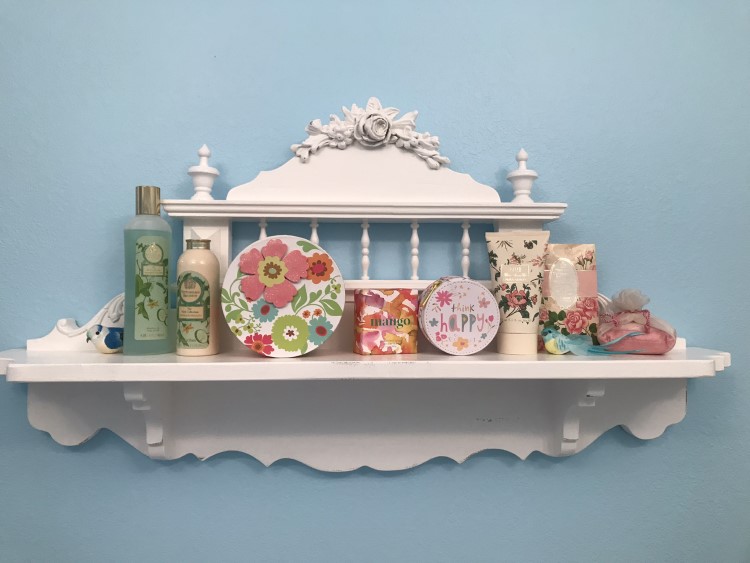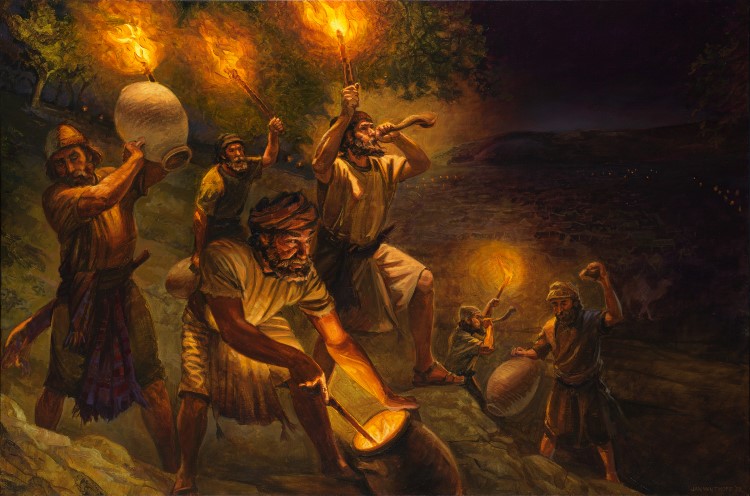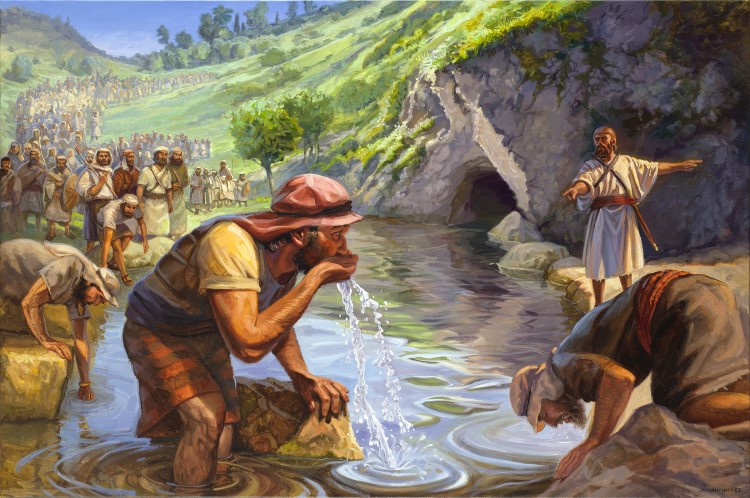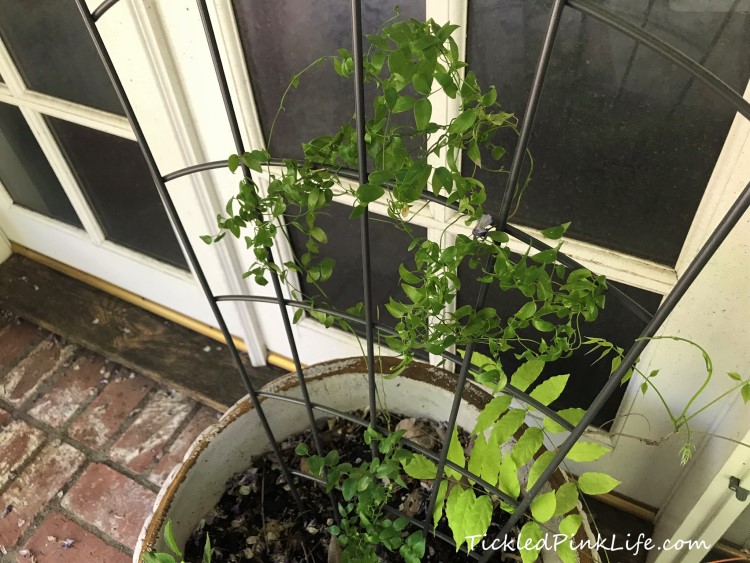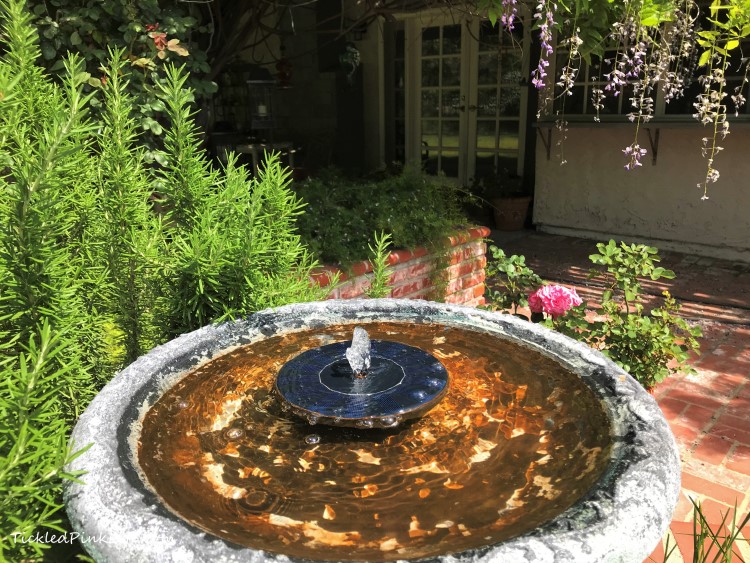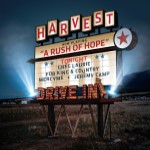Last week, my sister told me about a survey she saw on social media. It polled Christians asking if they thought there would be another great revival. Most said no, stating that things would just get worse and worse, thereby setting up world events to usher in the Great Tribulation. I found this astonishing.
The prevailing attitude among many Christians is one of defeat and depression. They have no expectation that God will do anything miraculous, or orchestrate another great revival to save souls before the Rapture. And those are just the ones that believe in the Rapture—a great many others who embrace replacement theology believe there is no Rapture at all, and that Christians will need to hunker down with survival gear in order to live through the Great Tribulation. This mindset does not line up with Scripture on many fronts, which are too numerous to include here, but will likely be covered in a future blog post. The bottom line is that many Christians are without hope, because they do not believe that God will intervene in the current state of the world. They are just trying to get through life, and looking for Jesus to rapture them out of here before things get too bad. What a sad state to live in. No wonder they are depressed.
WHY DO THEY BELIEVE THIS?
Many cite the list of signs Jesus described in Matthew 24:4-14: false messiahs, wars, rumors of war, nations and kingdoms in conflict, famine, pestilence, earthquakes, etc. Since we are living through some of those events now, many believe we are already proceeding through the list and can therefore only expect the Rapture to occur next. That could be the case, but Jesus starts the list of signs and then tells the disciples not to be troubled or afraid, as the “end is not yet.” This gives me pause to wonder if there might be gaps of time between the signs—meaning maybe they don’t necessarily all occur in quick succession to one another. We tend to read paragraphs assuming everything listed all happens at the same time, but Scripture shows that sometimes events can actually be many years apart. For example, Luke 4:21 tells of Jesus reading only a portion of a prophetic passage from Isaiah, declaring “today this Scripture has been fulfilled in your hearing.” But the rest of the passage remains unfulfilled to this day, and won’t be fulfilled until Jesus returns to the earth a second time. I am not saying that this is definitely the case in Matthew— but I am saying that time gaps of even several years between these signs cannot be ruled out. Jesus also mentioned that these were the “beginning of birth pangs” implying that signs would ebb and flow for a time until they got closer to the end. Additionally, many of these events have happened numerous times over the years in all parts of the world, so we cannot just assume that because we see some of them now, we are definitely in this rigid timeline. In any case, the Church is supposed to be about her Father’s business until he tells his son to go fetch his bride. Jesus clearly tells us what that business is.
THE GREAT COMMISSION
The ministry of Jesus was all about saving souls—to provide a way of reconciliation between fallen mankind and a holy God. After his death and resurrection, he commissioned his followers (who became the Church or body of Christ) to bring the good news of salvation to all who would hear it. Very simply, Jesus identified the problem, he directed the solution, and then he provided the resources needed to accomplish the mission.
PROBLEM IDENTIFIED
When he saw the crowds, he had compassion on them, because they were harassed and helpless, like sheep without a shepherd. Then he said to his disciples, “The harvest is plentiful but the workers are few. Ask the Lord of the harvest, therefore, to send out workers into his harvest field.” Matthew 9:36-38, NIV
Jesus called his disciples to look at the world from his perspective. While many chose to follow him during his ministry, there were obviously countless others who never met him. Notice that Jesus said the harvest is plentiful. The fields were ripe then and they continue to be ripe now. He saw a world of present and future people, all searching for truth, all needing a savior. But who was going to tell them? Who would spread the good news of his message of salvation? Who would labor in these fields of human souls? As Jesus asked these questions of his disciples, he already had a plan.
SOLUTION DIRECTED
Then Jesus came to them and said, “All authority in heaven and on earth has been given to me. Therefore, go and make disciples of all nations, baptizing them in the name of the Father and of the Son and of the Holy Spirit, and teaching them to obey everything I have commanded you. And surely, I am with you always, to the very end of the age.” Matthew 28:18-20, NIV
Jesus charged his followers to be the workers that would facilitate the harvest. This mission started during his ministry, and for the Church it continues until the Rapture. The directive, known as the Great Commission, was to take the message of salvation to the whole world.
RESOURCES PROVIDED
“But you will receive power when the Holy Spirit comes on you; and you will be my witnesses in Jerusalem, and in all Judea and Samaria, and to the ends of the earth.” Acts 1:8, NIV
Just before his ascension, Jesus promised his followers that he would provide a special kind of help that would empower them to complete their mission. The indwelling of the Holy Spirit enabled believers to accomplish what they would not have otherwise been able to do under their own strength. The Gospel continues to spread and souls continue to be saved today, because of the work of the Holy Spirit.
To better understand the role of the Holy Spirit in this soul-saving operation, it is helpful to study how spiritual ideas are illustrated in Scripture by metaphorical language.
HARVEST AND RAIN
Metaphors are used throughout Scripture to present truths in ways that readers can understand. The practice of farming and agricultural terms like harvest, seed, and rain represented not only physical properties that God used to provide for and bless his people, but were also symbolic of spiritual concepts.
Successful farming in ancient Israel was heavily dependent upon the rain that God promised he would provide if his people were obedient, and withhold if they were not (Deuteronomy 11:13-15). Harvest was accomplished by the provision of two seasonal rains in the Autumn (Former) and in the Spring (Latter).
To appreciate how these rains are used in Scripture metaphorically, we must understand the geography and climate of ancient Israel. Much of the soil in the region was composed of limestone and sandstone, which made underground water difficult to find. Wells were dug, but the scarcity of water led to fighting over the possession of them. Israel’s survival was dependent on a successful farming season which was at the mercy of their limited rainfall.
The Autumn/Former rain (around October) marked the beginning of the rainy season and allowed farmers to plow fields and sow seeds. After a dry summer (roughly May to September), this rain softened the ground so that it could be tilled for planting (Psalms 65:10). Once plants were established, periodic rains (about November to March) kept the crops watered.
The Spring/Latter rain (around April) marked the end of the rainy season and allowed the crops to be harvested. This rain was heavier than that in the fall and was necessary for ripening the barley and the wheat. The grains were harvested around the time of Pentecost/Feast of Weeks (Exodus 34:22). Fruits, other seeds and vegetables were harvested after Pentecost. These included grapes, olives, dates, figs, and pomegranates (Deuteronomy 11:14).
While there was intermittent rain during the entirety of this seven-month period, it was the Former and Latter rains that “book ended” the season, and both were essential for the harvest to be successful. In Scripture there is a correlation between God’s spirit and his provision of water.
For I will pour water on him who is thirsty, and floods on the dry ground; I will pour My Spirit on your descendants, And My blessing on your offspring. Isaiah 44:3, NKJV.
In this view, references to Former and Latter rain are seen as metaphors for the outpouring of the Holy Spirit. The prophet Joel described an event that would one day enable God’s children to be witnesses of his power through the gifts of dreams, visions, and prophecy (Joel 2:28-29), and that is exactly what happened with the early Church at Pentecost.
BAPTISM OF THE HOLY SPIRIT AT PENTECOST
The first outpouring of the Holy Spirit occurred at Pentecost, where believers were given supernatural abilities to preach with boldness, to prophesy, and to do miracles, signs, wonders. Scripture also reports that a physical manifestation of something akin to a burning flame hovered above the believers as they spoke in foreign languages that they had never learned (tongues). They went from being fearful men to brave warriors for the Gospel. This event fulfilled the promise of Jesus (Acts 1:8), and according to Peter, fulfilled the prophecy of Joel (Joel 2:28-31).
But this is what was spoken by the prophet Joel: ‘And it shall come to pass in the last days, says God, that I will pour out of My Spirit on all flesh; Your sons and your daughters shall prophesy, your young men shall see visions, your old men shall dream dreams. And on My menservants and on My maidservants I will pour out My Spirit in those days; And they shall prophesy.’ Acts 2:16-18, NKJV
Pentecost marked the birth of the Church and the beginning of the Church age. Once believers received the baptism of the Holy Spirit, they were courageous and empowered. With confidence they preached Christ. They performed miracles and healed the sick. The Gospel message spread and thousands came to faith.
Many pastors teach that supernatural abilities were only provided to the apostles or early Church leaders to establish their credibility among the people, and that those gifts are no longer valid today. Scripture however, shows that all believers were qualified to receive those gifts (Mark 16:15-18) and some were still seeking and practicing those gifts fifty years into the Church age (1 Corinthians 14).
The Church is a unique group of people in God’s timeline, where he’s opened a door of access for us via a relationship with his Son. This is a finite period of grace, and soon the door will close and God will resume his work with national Israel. Scripture tells us that there is a specific number of believers that will be saved before the Church age closes (Romans 11:25-27).
If God used the outpouring of the Holy Spirit to birth the early Church and enable them to spread the Gospel message to all nations, might he also use a second great outpouring to gather in the final number? Does Scripture describe or allude to such an event?
WAITING FOR THE LATTER RAIN
James chapter five describes some very unique events. The first six verses give a chilling account of a brutal condemnation and judgement imposed on a specific group of people.
Go to now, ye rich men, weep and howl for your miseries that shall come upon you. Your riches are corrupted, and your garments are motheaten. Your gold and silver is cankered; and the rust of them shall be a witness against you, and shall eat your flesh as it were fire. Ye have heaped treasure together for the last days. Behold, the hire of the labourers who have reaped down your fields, which is of you kept back by fraud, crieth: and the cries of them which have reaped are entered into the ears of the Lord of Sabaoth. Ye have lived in pleasure on the earth, and been wanton; ye have nourished your hearts, as in a day of slaughter. Ye have condemned and killed the just; and he doth not resist you. James 5:1-6, KJV
These verses speak to those who are known by their riches (obtained by fraud) and for the murder of innocents—perhaps those who can’t fight back, like children. These elites have spent a lifetime living for themselves and accumulating riches for the last days and the time of their calamity is upon them.
A study of the original Greek offers some interesting details. The word for cankered only occurs here and means “to rust over” or “cover with rust.” This is a curious definition as gold and silver do not rust. Rust is an oxidation process that can affect materials containing iron. This may indicate a unique type of corrosion, or a unique event not previously seen. Or it could be that gold/silver are general descriptors for something else these people hold of value-maybe something containing iron (hemoglobin?). The word for rust also means “venom or poison.” Whatever it is, the decomposition of their treasure will be a witness to their evil which will “consume their flesh like fire.” This sounds like a physical manifestation of judgement caused by the very thing they value (perhaps consumed), which will be visible for all to see.
In this passage the wicked are also called to understand how those they’ve wronged have cried out for justice asking Jehovah God to intervene “militarily” and go to war on their behalf. It is interesting that Lord of the Sabaoth, translated “Lord of Hosts or Lord of armies” is used only twice in Scripture—once here in James to describe the vengeance that God takes on the wicked oppressors, and again in Romans 9:29, where it refers to the God who used fire and brimstone in the destruction of Sodom and Gomorrah. This passage may suggest an event of widespread death of certain rich elites via the hand of God, perhaps with the use of fire and brimstone to show the world the power of his judgement.
The judgement passage is followed by an encouragement to believers to exercise patience in light of the wickedness around us, with a reminder that the return of Christ is near. It also reiterates the importance of both the Early and Latter rains in the harvest process.
Therefore, be patient, brethren, until the coming of the Lord. See how the farmer waits for the precious fruit of the earth, waiting patiently for it until it receives the early and latter rain. You also be patient. Establish your hearts, for the coming of the Lord is at hand. James 5:7-8, NKJV
The word for precious means “as of great price, held in honor, esteemed, and especially dear.” This comes from a root word meaning “a valuing by which the price is fixed, of the price itself or of the price paid, or received for a person or thing bought or sold,” and this comes from a root word meaning “to pay or recompense, to pay a penalty, or suffer punishment.” What does all that signify? It means that the fruit is deemed precious, because its value is based on the price paid for it—as in Jesus paid the price of our sins with his life.
The word for fruit denotes actual “fruit” or “progeny,” but can also mean “to gather fruit (souls) into eternal life.” Additionally, this word probably comes from the root word “harpazo” which means “to seize, carry off by force, claim for oneself eagerly, or to snatch out or away”—the same word used to describe the Rapture.
The phrase until it receives means “to take with the hand, lay hold of, to take up a thing to be carried, to take what is one’s own, to take for oneself, to receive what is offered, to choose, select, to obtain, or to get back.” These definitions seem to suggest rapture imagery as well.
The word for early means “before or early” from a root word meaning “in the morning.” The word for latter means “late or evening” from a root word meaning “after a long time.” These definitions are straight forward enough, but both of these words are used only once in Scripture in this verse, maybe indicating that this “rainy season” is unique and different than from any other time.
Does this passage in the book of James point to a sequence of events to include a specific and very public judgement for some oppressors, and an outpouring of the Holy Spirit that brings in a harvest of souls culminating in the Rapture of the Church? I don’t know, but it certainly seems like this passage could describe that.
Are there similar Scriptural references that run parallel to this narrative? Perhaps. The wheat and tares parable in Matthew shows some striking similarities to the events in James chapter five.
THE WHEAT AND THE TARES
Another parable He put forth to them, saying: “The kingdom of heaven is like a man who sowed good seed in his field; but while men slept, his enemy came and sowed tares among the wheat and went his way. But when the grain had sprouted and produced a crop, then the tares also appeared. So the servants of the owner came and said to him, ‘Sir, did you not sow good seed in your field? How then does it have tares?’ He said to them, ‘An enemy has done this.’ The servants said to him, ‘Do you want us then to go and gather them up?’ But he said, ‘No, lest while you gather up the tares you also uproot the wheat with them. Let both grow together until the harvest, and at the time of harvest I will say to the reapers, “First gather together the tares and bind them in bundles to burn them, but gather the wheat into my barn.” Matthew 13:24-30, KJV
Later in the chapter, Jesus explains the parable telling his disciples that the good seed are the children of the kingdom, while the tares are the wicked. The harvest is at the end of the world and the reapers are the angels. The Greek word used for reapers is found only twice in Scripture—both here in Matthew, to describe those angels assigned to gather the tares for destruction. It means “reaper” from a root word meaning “cut off or destroy as crops are cut down with a sickle.” Could that imply that this separation process is a unique judgement event similar to the one described in James?
It is also interesting to note that different Greek words are used here to describe the two “gatherings.” Concerning the tares, the word gather means “to gather up, or to collect in order to carry off.” This word is used eight times in Scripture and all eight refer to taking up the wicked or bad fruit (Matthew 7:16, 13:28, 13:29, 13:30, 13:40, 13:41, 13:48, and Luke 6:44). However, concerning the wheat, the word used for gather means “come together, be assembled, to collect fishes (implying believers-fishers of men), to join together those previously separated, to lead with one’s self into one’s home, to receive hospitably, or to entertain.” Also significant is the word used for barn, which means “storehouse, granary, or a place where anything is laid up.” Since the passage clearly states that the barn belongs to the owner, the destination of the wheat sure sounds like heaven where we are encouraged to “lay up our treasures” (Matthew 6:20).
This passage shows a future event where the wicked and the righteous will be separated. First, on specific assignment, angels will gather, bind, and bundle the wicked for destruction, then the righteous will be gathered and taken into God’s house.
Many assume this refers to the very end of the age when Christ returns physically to the earth, but people who survive the Great Tribulation will not go to heaven. They will remain on the earth in mortal bodies (Isaiah 65:20) and go into the Millennial Reign. This gathering of the righteous “into the barn” as described in Matthew sounds more like the Rapture than the end of the Great Tribulation.
Additionally, in the later passage where Jesus interprets the parable for his disciples (Matthew 13:36-43), there are some subtle hints that suggest that the parable may describe one event, while the interpretation describes a second event. Verses 36-39 identify details of the story, while verses 40-43 provide a comparison between the parable and future events.
As therefore the tares are gathered and burned in the fire; so shall it be in the end of this world. The Son of man shall send forth his angels, and they shall gather out of his kingdom all things that offend, and them which do iniquity; And shall cast them into a furnace of fire: there shall be wailing and gnashing of teeth. Then shall the righteous shine forth as the sun in the kingdom of their Father. Who hath ears to hear, let him hear. Matthew 13:40-43, NKJV
The two uses of gathered/gather are the same word used in the parable indicating the same sort of operation. The word end means “completion or consummation,” from a root word meaning “to end completely, to accomplish, bring to fulfilment, or to destroy.” The word used for world means “forever, an unbroken age, perpetuity of time, eternity, universe, period of time, age, or a Messianic period.”
It is interesting to note that the word used here for angels is not the same word used in the parable. Here it means “messenger or one who is sent.” If the word for angel was so specific in the parable, why is it absent here?
The two uses of kingdom refer to the “Messianic reign of Christ.” This part of the passage in Matthew clearly describes the end of the Great Tribulation where the unrighteous are removed and those who are saved “shine as the sun” in the kingdom of God. However, this differs from the parable, as there is no mention of the righteous being “gathered” or “taken to the barn” so I read this passage as a comparison of two events—meaning “just as a separation judgement happened in event #1, a similar separation judgement will happen in event #2.”
The wheat and tares parable mirrors James chapter five alluding to a separation judgement before the Rapture (Matthew 13:24-30)—while the parable interpretation points to pre-Millennial Reign events (Matthew 13:40-43).
CAN WE EXPECT A CHURCH AGE HARVEST VIA THE LATTER RAIN?
Although the prophecy in Joel chapter two was partially fulfilled at Pentecost, many believe the passage actually applies to Tribulation saints. But stretching the “rainy season” to cover both the Church age and the Great Tribulation period is like providing the “planting rain” to one field and the “crop harvesting rain” to another field. Both rains are needed, so the harvest analogy only holds up if the Latter rain falls on the same group of people who experienced the Former rain—and that was the Church.
Additionally, while the Rapture is the next event expected to occur on the Biblical calendar, I don’t see that the Church is quite ready to go yet. Many things are still left undone. Years-long prayers for unsaved loved ones remain unanswered. Prodigals are still not home. There is compromise and division in the body of Christ, with public squabbling, name-calling and a lack of unity. As described in the letters to the seven churches (Revelation chapters 2-3), some denominations continue idol worship. Some condone and welcome the life style of Jezebel, and some place social policies over the saving of souls. The Church is infiltrated with non-believers that have watered down the truth of the Gospel or replaced it with lies altogether. Before the groom returns for his bride, she needs to be cleansed and she needs to complete her mission. In her current state, how is she supposed to do that if God does not step in to help her?
I think the real problem is that much of the Church has low expectations of what God can or will do. Since we haven’t seen miraculous delivery in our day, most believe that God just doesn’t do that anymore. Is not the God we serve the same yesterday, today and forever (Hebrews 13:8)? So why can’t we believe that he will do for us what he did for Israel, or Noah, or Lot, or David, or Joseph? Does he not give us examples of deliverance in Scripture to show us his record of faithfulness?
I believe that the body of Christ has abdicated her authority in the spiritual realm, because pastors have been teaching us for years to embrace a life of suffering and tribulation, rather than to use the tools God gave us to combat the enemy. We should be fighting from a place of victory, not fighting for victory.
If a second outpouring of the Spirit were to occur, then believers would be empowered and emboldened just as the early Church was. Then when Jesus arrives to take her to the wedding supper of the Lamb, she is complete, victorious, strong, spotless, and ready to go home.
Christians seem to have no problem believing the Devil runs roughshod across the planet causing mayhem, but are hesitant to believe God is capable or willing to do anything about it. Satan would like nothing better than to snuff out the body of Christ altogether, so when we see our future selves marginalized in society, hiding, silenced in the gulag, or mostly dead when Christ returns, aren’t we giving the enemy what he wants? Is the Devil more powerful than God? Jesus told us that the gates of hell would not prevail against his Church (Matthew 16:18). That sure sounds like we don’t leave this world in a defeated state. Shouldn’t we rather believe for a glorious wrap-up of the Church age by expecting God to do great things? Shouldn’t we expect him to finally answer those prayers for people he’s put on our hearts for years? Shouldn’t we expect him to reach the prodigals and bring them home? Shouldn’t we expect him to lift the veil of deception and reveal the truth for millions, to usher in a magnificent harvest of souls? Such expectations would certainly give us hope, encouragement, and a zeal to be about our Father’s business. Rather than dwelling on everything that is currently wrong, let’s focus on the power of God to do something amazing with his Church so she can complete her mission and go home.
Jesus used the harvest metaphor for a reason, and James tells us to wait patiently for both the Former and the Latter rains. The outpouring at Pentecost softened the ground for planting and the Church was born. Over the years, we’ve seen smaller rains continue to add to the body of Christ in pockets of revival. If the model follows through, we should expect to see the heavy deluge of the Latter rain, just before Jesus returns in the air to collect the precious fruit of his harvest.
Hmmm… Do you hear that? I believe it sounds like rain…
On the journey toward home,
Lynn
Greek and Hebrew word study: https://www.biblestudytools.com/interlinear-bible/ and https://www.blueletterbible.org/
{ 0 comments }

















